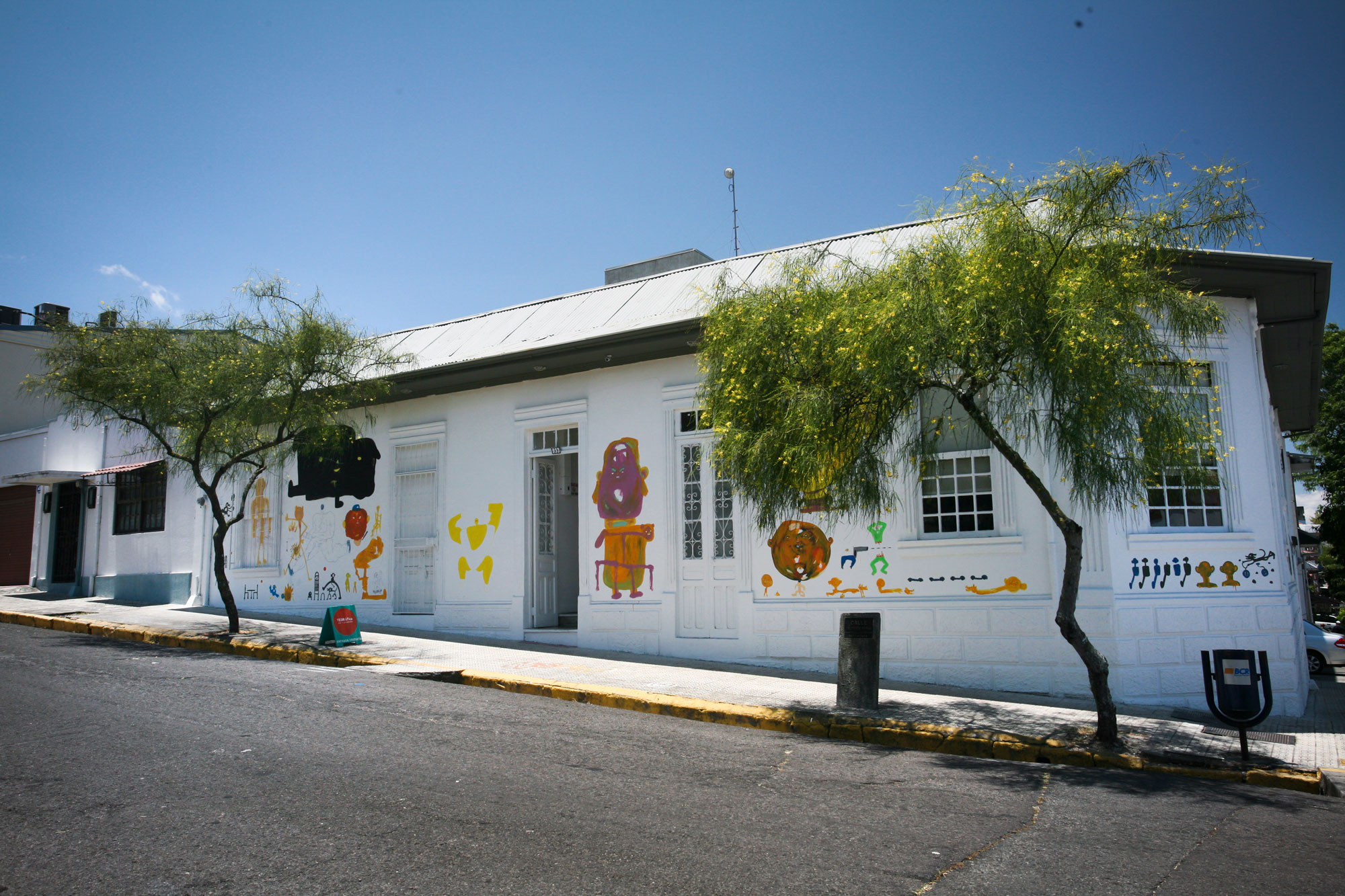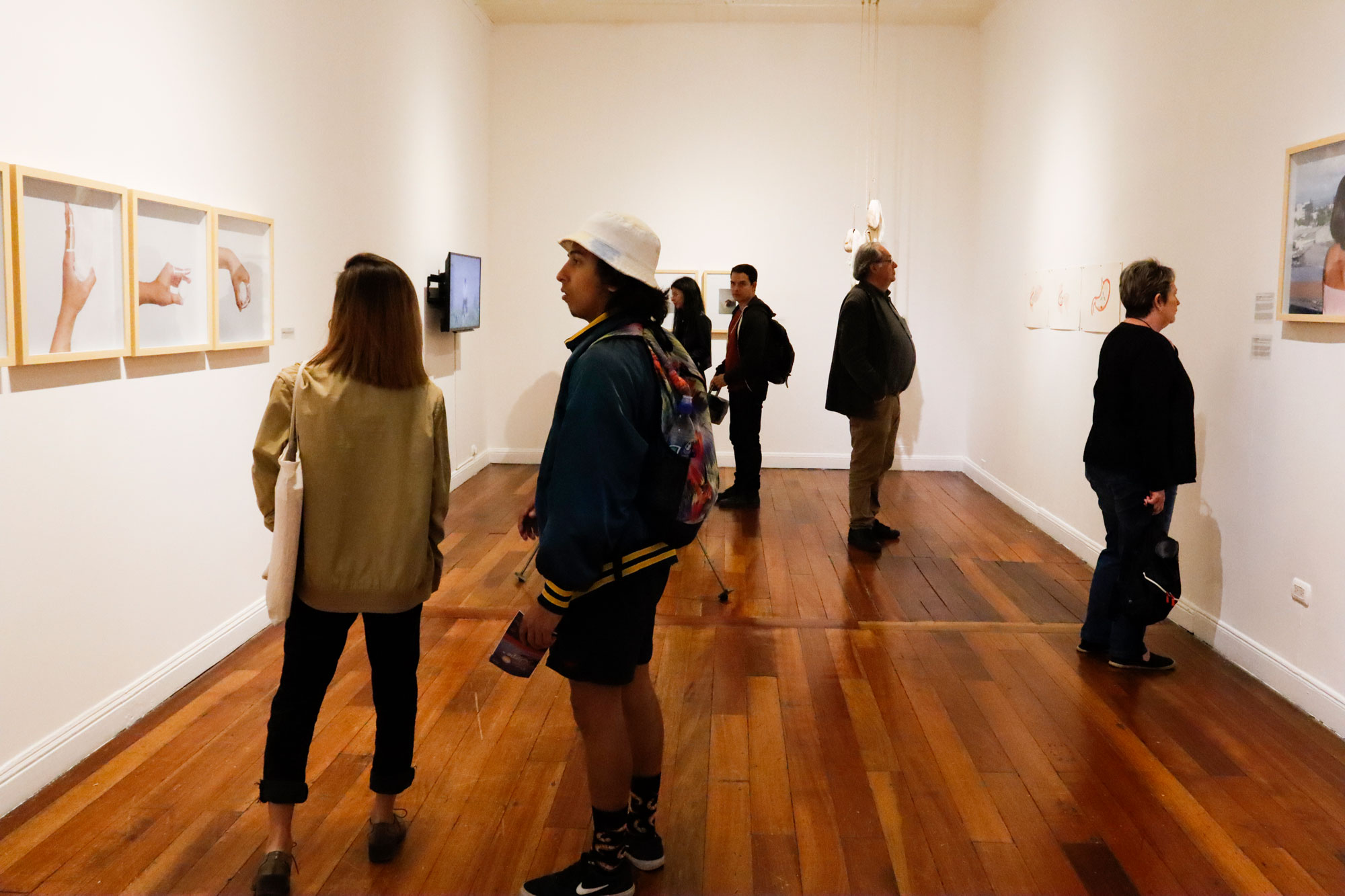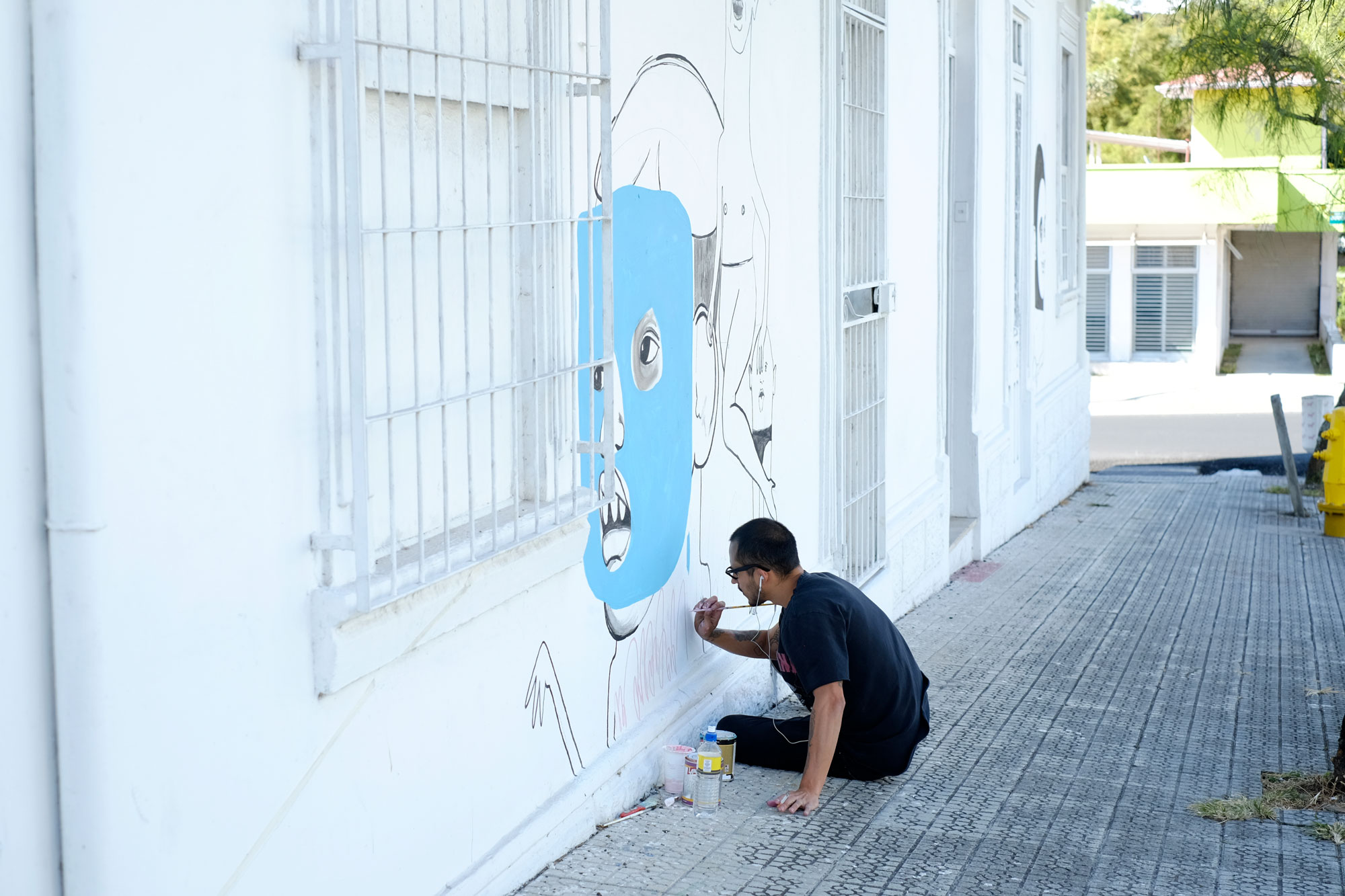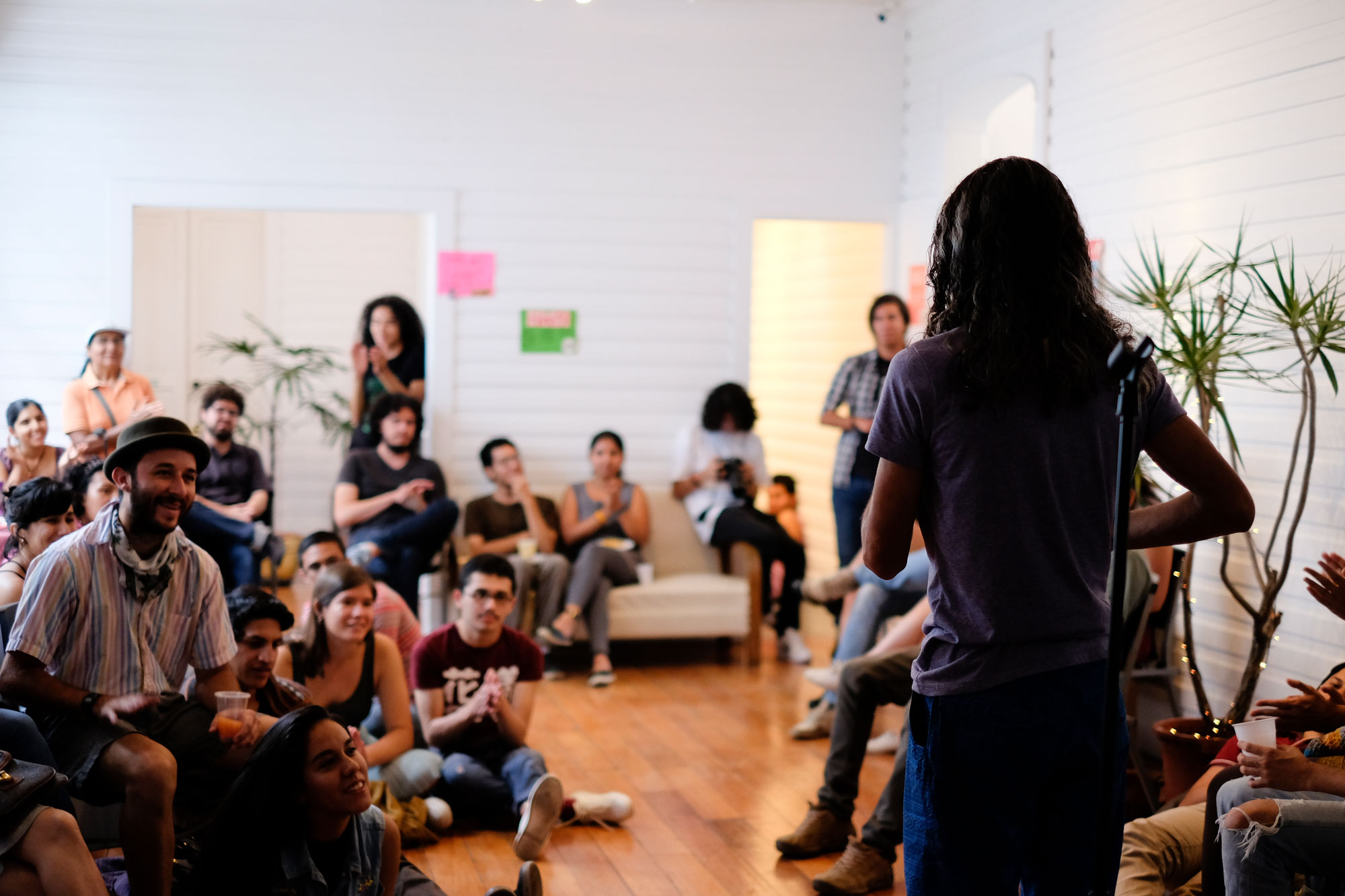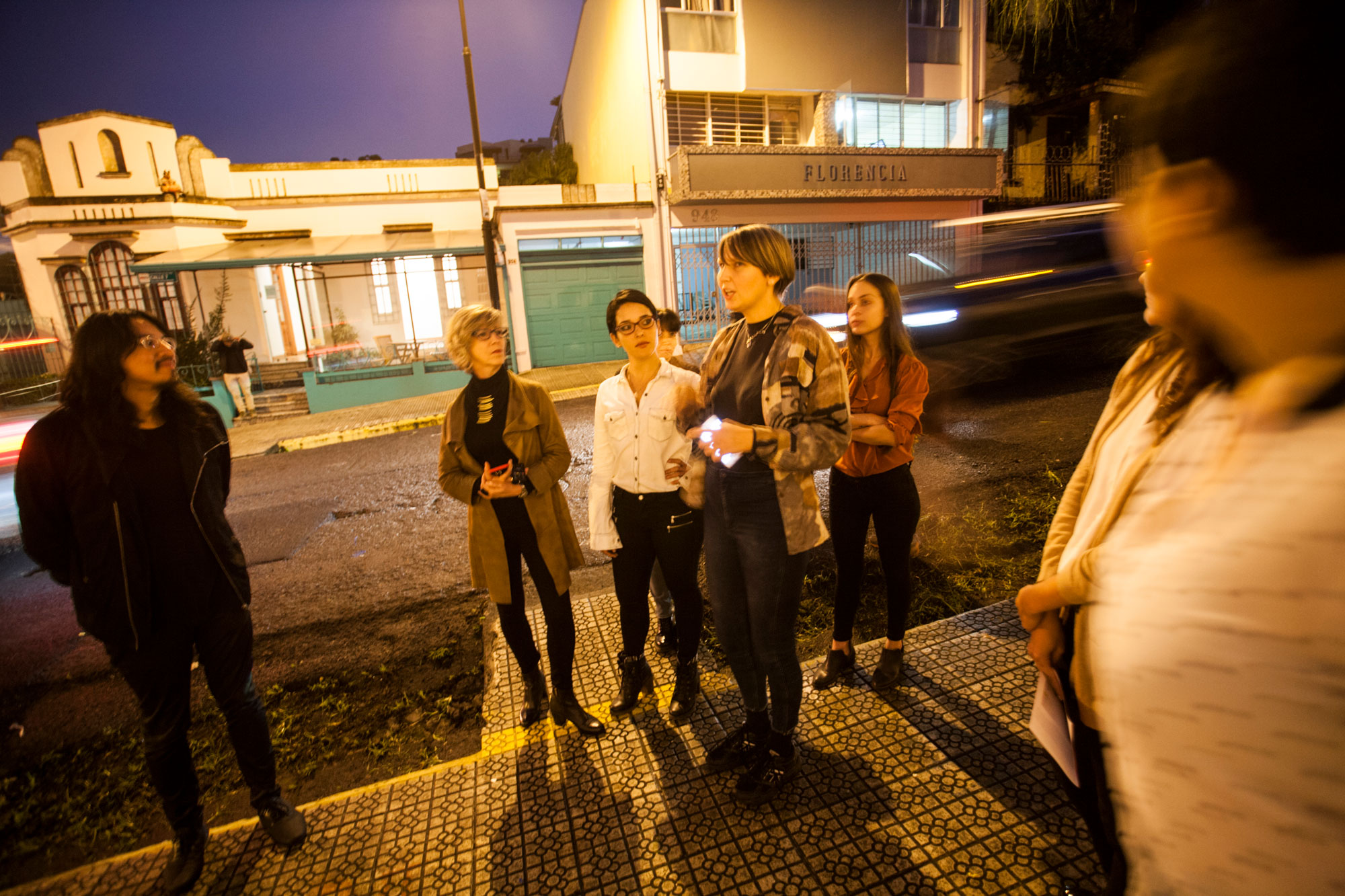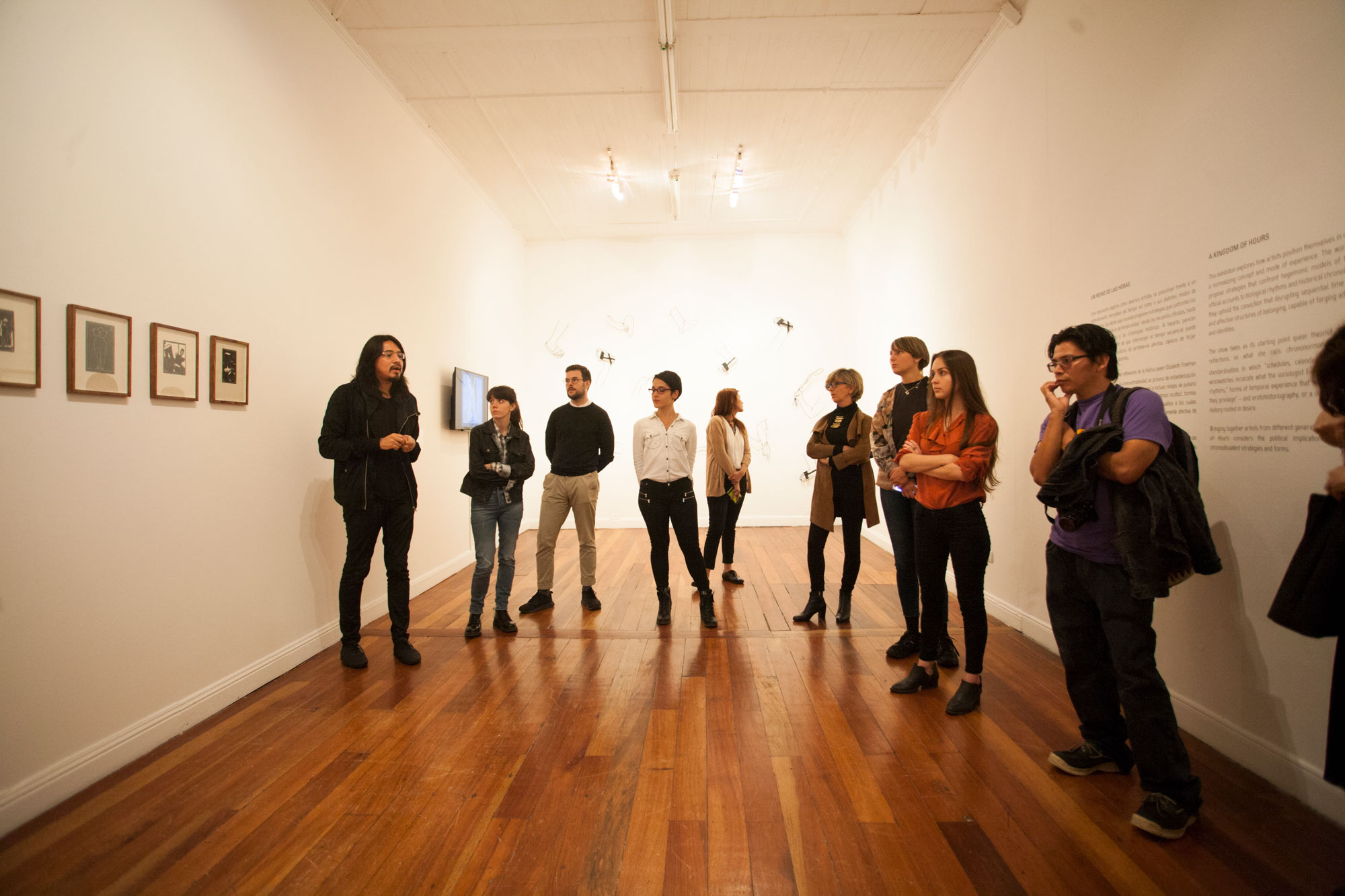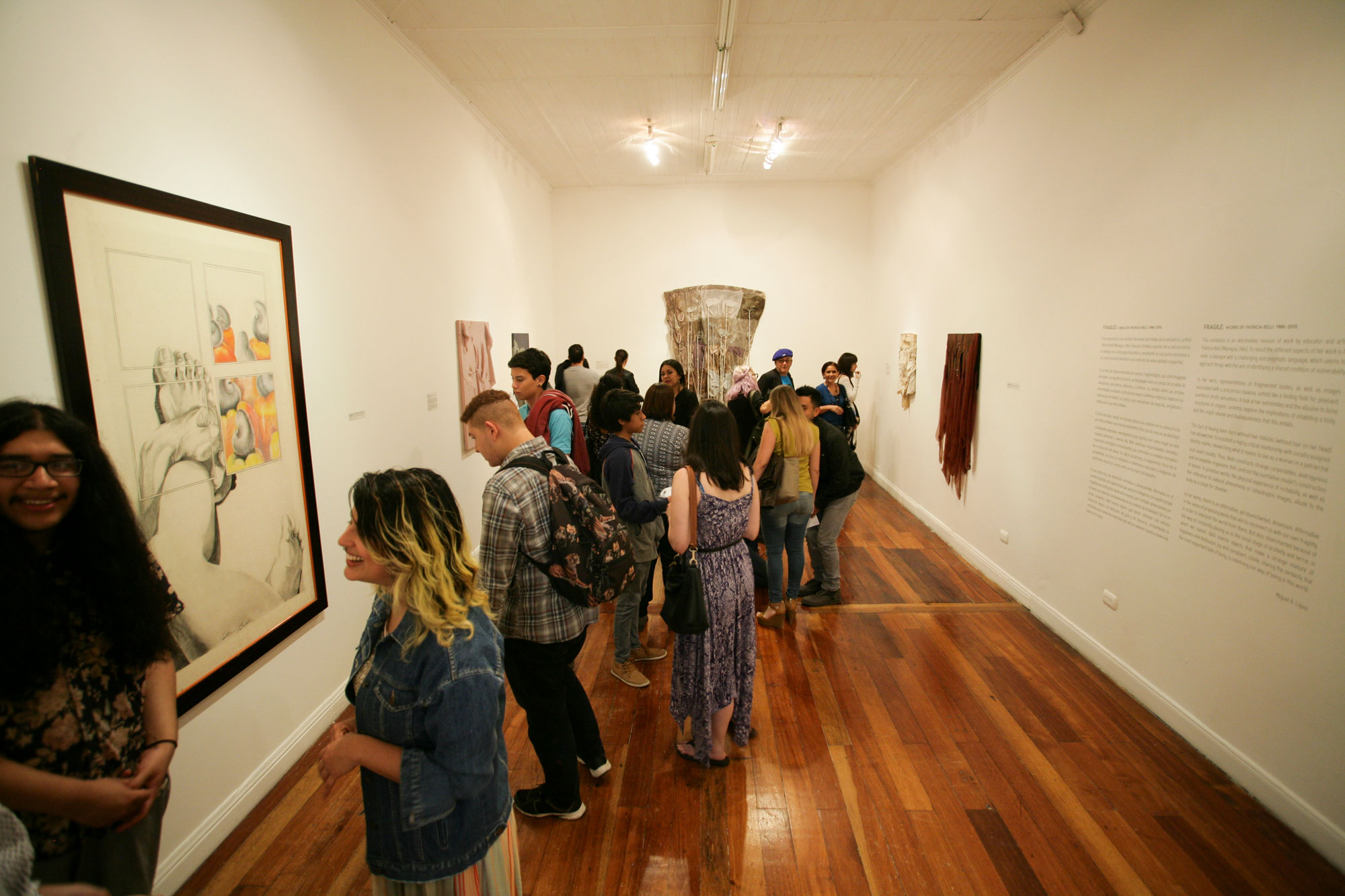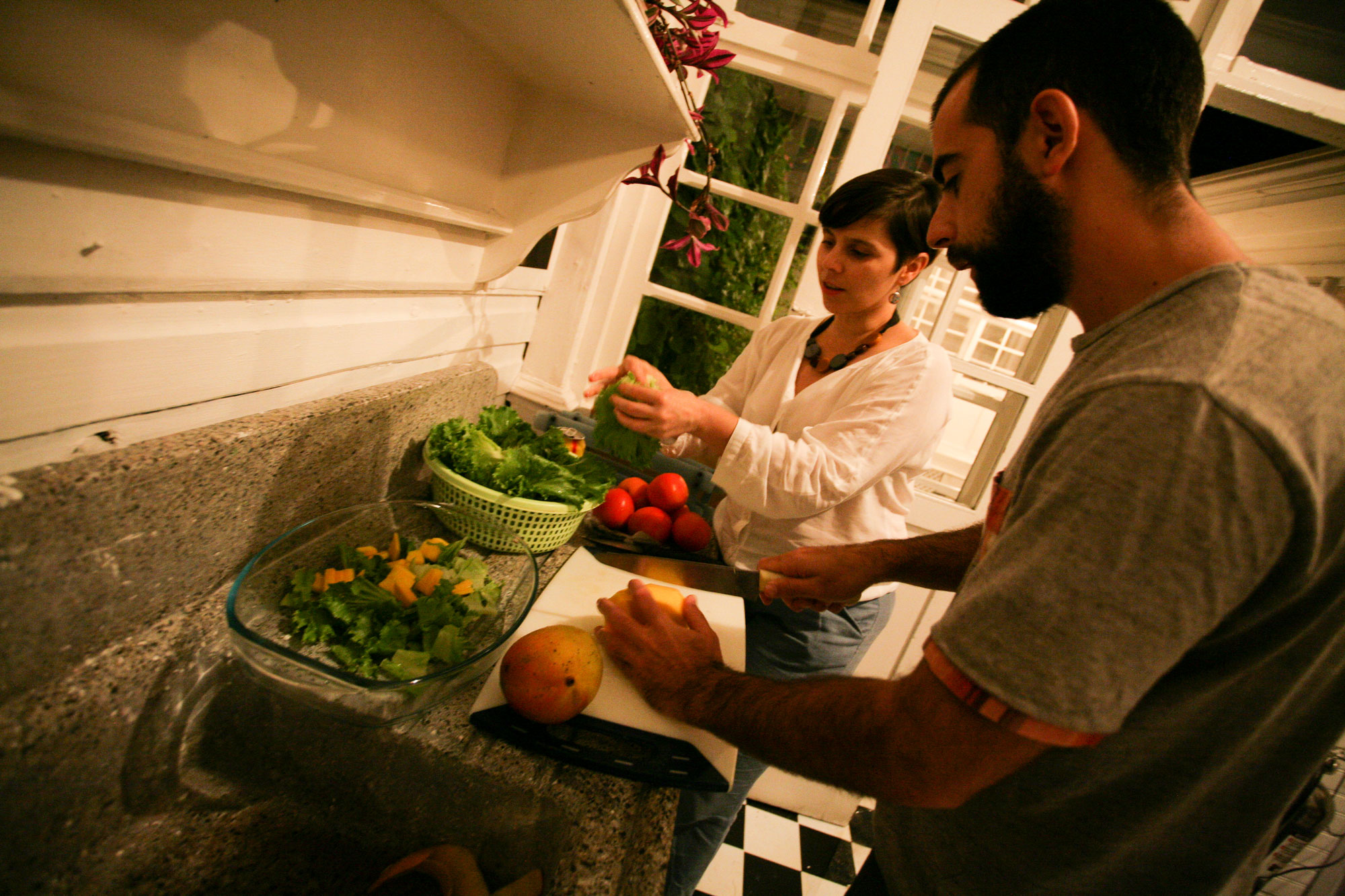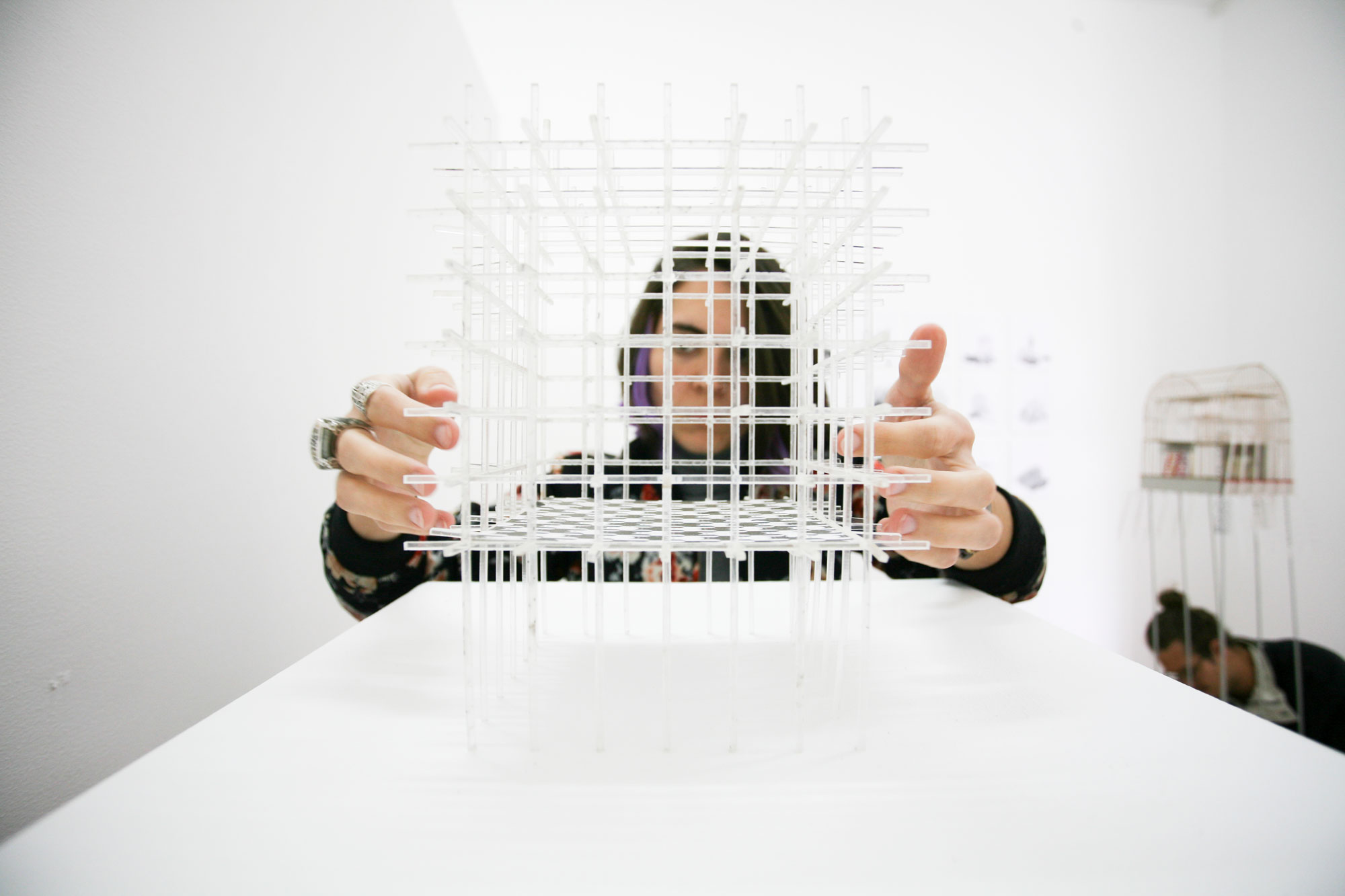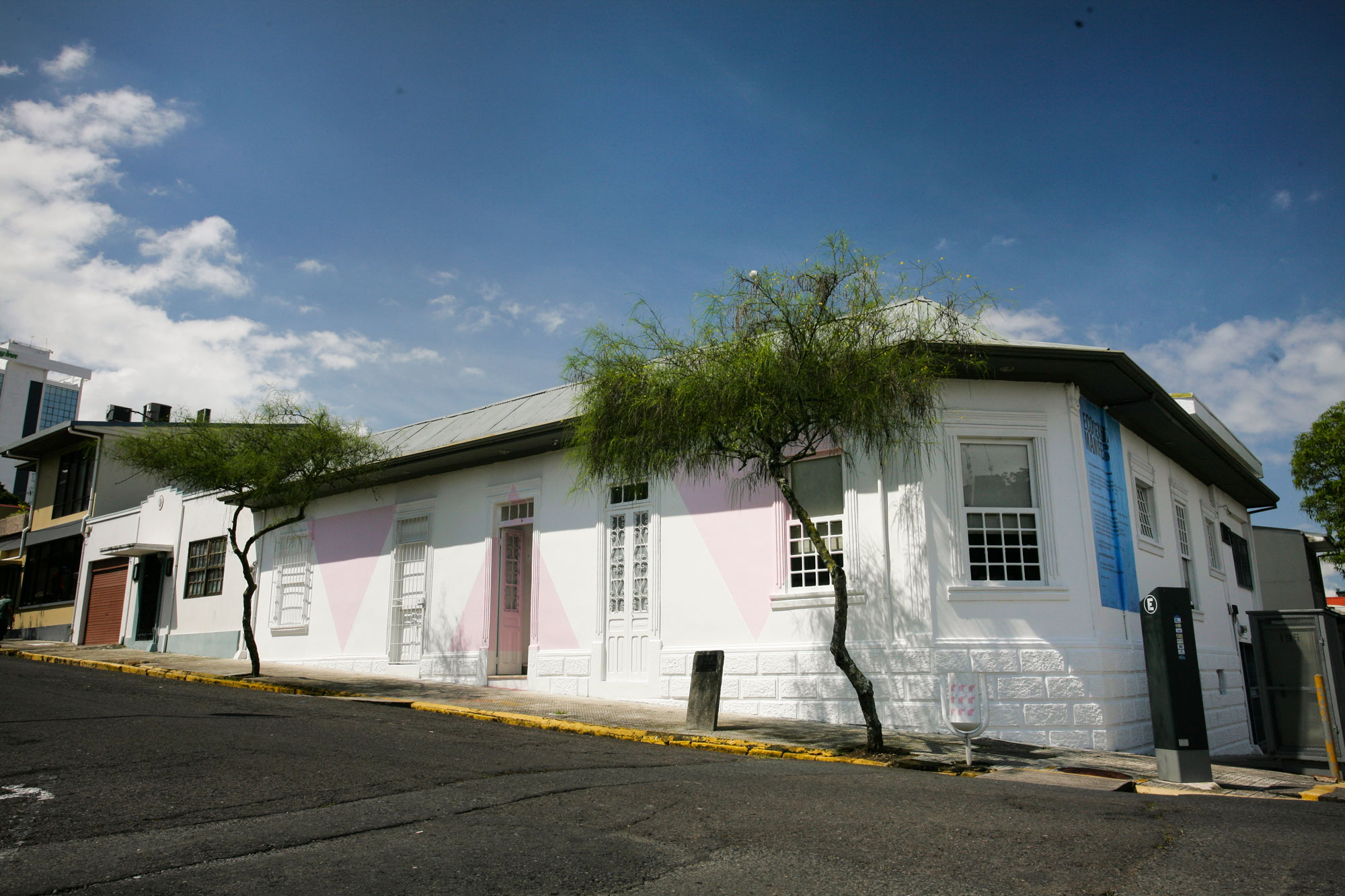HISTORY
Located in San José, Costa Rica,TEOR/éTica is a private, non-profit, independent project, dedicated to the research and diffusion of contemporary artistic practices. Both its name and its reason for being imply theory, ethics and aesthetics. Throughout more than two decades of work, TEOR/éTica has consolidated itself as one of the most dynamic and purposeful cultural projects in the region, recognized internationally for promoting the development of the arts and fostering new ways of thinking and thinking itself critically. This project operates as a platform for research and dissemination of contemporary artistic practices, with an emphasis on Central America and the Caribbean. Since its foundation, a wide group of agents has participated in the construction of TEOR/éTica, permeating it with their particular interests and practices, thus generating a dynamic organization, interested in looking at and questioning the place from where it operates.
TEOR/éTica aims to create spaces for doubt, debate and the generation of thought relevant to the region. For this, several strategies have been developed, considering art as a common space from where to generate study and seek other ways of being together to learn and build collectively. We work on different lines of action that intersect and complement each other to provide conversation spaces –symbolic and physical– about contemporary artistic practices, in dialogue with social and political global realities.
This space was founded thanks to the initiative of Costa Rican artist, curator and researcher Virginia Pérez-Ratton (1950-2010), and the complicity and support of several colleagues, artists, academics and cultural agents, amongst which are Tamara Díaz Bringas, Priscilla Monge, Víctor Hugo Acuña, Manuel Picado, Ruth Sibaja, Pedro Leiva, Luis Fernando Quirós, Sagrario Pérez Soto, Carlos Capelán, Cecilia Paredes, Glenn Janpol y Elías Soley. The Founding Assembly was originally constituted by artist and curator Rolando Castellón (Nicaragua/Costa Rica), curator Paulo Herkenhoff (Brazil), artist Claude Tournon (Francia/Costa Rica) and architect Bruno Stagno (Costa Rica).
MISSION STATEMENT
According to the Constitutive Act, the ARS Teoretica Foundation has “as its main objective to administer and support the project known as TEOR/éTica, aimed at promoting, fostering and developing research, study and dissemination of artistic practices of the Central American and Caribbean region, with an emphasis on the visual arts, without excluding other areas of the world, as well as to stimulate the active participation of artists and intellectuals in the articulation of thought pertinent the region.”
VISION
TEOR/éTica wishes to function as a catalyst and support for the artistic production of Costa Rica, Central America and the Caribbean. In addition, taking advantage of its international connections, it aims to activate itself as a platform from where to propitiate formative and critical thinking activities regarding local and global contemporary discourses and realities, understood through art. TEOR/éTica is committed to generate spaces for art to critically accompany the development of our contemporary societies, to contribute in a real way to the construction of a critical public sphere, and to recover the ability to put certain social consensus in crisis.
LINES OF ACTION
These are the lines of action that guide our work; lines that intersect and complement each other.
- EDITORIAL PROGRAM
Dedicated to the production of research books and experimental formats, as well as monographic publications and exhibition catalogs. Some of the more recent projects include the Local Writing series: Critical positions from Central America, the Caribbean and its diasporas, which compiles essays by leading agents of the region; the Essential Readings series, focused on anthologizing texts on important debates for Latin America; and the digital magazine Buchaca, which documents the activities that happen annually in TEOR/éTica and Lado V.
- GRANTS AND SUPPORT MECHANISMS
In response to the limited possibilities for support in our context, we offer grants for research and/or production to individuals (artists, critics and curators) and to organizations. Among them are the Catalyst Grant, aimed at promoting the work of organizations in the region that build community around art; and El Flotador, a grant that seeks to support the production of work by emerging Central American artists. Similarly, our houses are offered as spaces that welcome diverse initiatives for encounter, conversation, training and experimentation.
- EXHIBITIONS
Our exhibitions function as axes of problematization and articulation to explore local realities, as well as to rescue and investigate historical processes of the region in dialogue with the global context. We propose and promote critical curatorial formats based on research that allow us to understand the social, cultural and political realities of the present. In recent years, exhibitions have highlighted the contribution of pioneering women artists in Central America and the Caribbean, the intersections between art and education, the manifestations of young art, and various collective experiments, among others. We try to generate alliances with various institutions, art organizations and museums so that these projects can travel internationally and amplify their reception.
- STUDY
(…) Studying is what anyone who investigates and keeps their attention awake towards everything that has not yet been codified does”- Marina Garcés. We don’t want to know.
We understand study as “a way of being with others”, from which collective learning can arise by coming together and talking about a shared concern or desire. Instead of “educating” in the formal and academic sense, we propose to think of alternative ways of doing and working that may open possibilities that go beyond the traditional ways of building and socializing knowledge. For this, art is the common space through which study is generated to seek other ways of being together and learning collectively.



